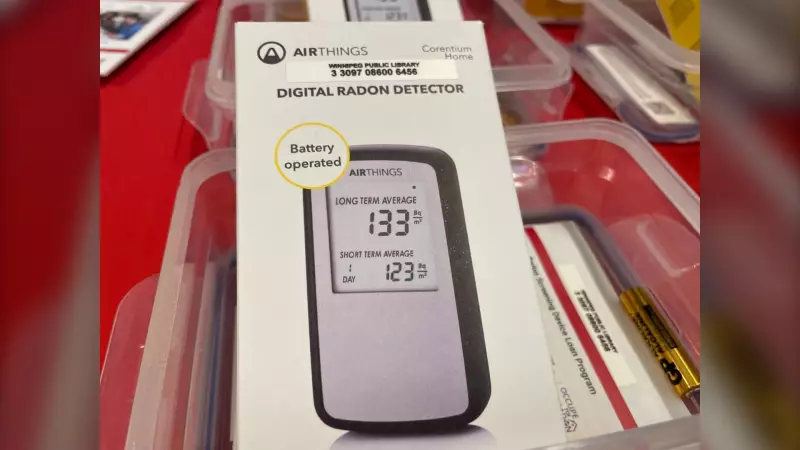
Winnipeg residents now have a powerful new tool in the fight against an invisible household danger, available at an unexpected location: their local library. The Winnipeg Public Library system has begun offering free radon screening kits, providing homeowners and renters with an accessible way to detect this silent health threat.
Radon, a colorless, odorless radioactive gas, represents the second-leading cause of lung cancer in Canada after smoking. What makes it particularly concerning is its ability to seep into buildings through foundation cracks and accumulate to dangerous levels without any visible signs.
Why Radon Testing Matters in Winnipeg
Health experts emphasize that radon exposure poses significant risks that many Canadians remain unaware of. "This initiative puts prevention directly into people's hands," explains a public health official familiar with the program. "Since you can't see or smell radon, testing is the only way to know if your home is affected."
The Winnipeg region's geological composition makes certain areas more susceptible to radon infiltration, though any home—regardless of age or construction—can potentially harbor dangerous concentrations.
How the Library Program Works
The screening process is straightforward and user-friendly:
- Visit any Winnipeg Public Library branch to pick up a free test kit
- Place the detector in the lowest lived-in level of your home (typically a basement or ground floor)
- Leave the kit undisturbed for the recommended testing period
- Return the device to the library for professional analysis
- Receive your results with guidance on next steps if elevated levels are detected
For those concerned about cost barriers, the program eliminates financial obstacles that might otherwise prevent testing. Traditional radon detection methods can cost homeowners significant money, making this library initiative particularly valuable for budget-conscious families.
Taking Action Against Radon Exposure
If testing reveals elevated radon levels, homeowners have several effective options. Professional radon mitigation services can install specialized ventilation systems that dramatically reduce concentrations, often bringing them well below Health Canada's safety guidelines.
"Knowledge is the first line of defense," notes a library representative. "By making testing accessible and free, we're empowering residents to protect their families' long-term health."
The program represents a growing recognition that public health initiatives belong in community spaces where people naturally gather. Libraries, once primarily associated with books, are increasingly becoming hubs for health education and preventive care resources.





